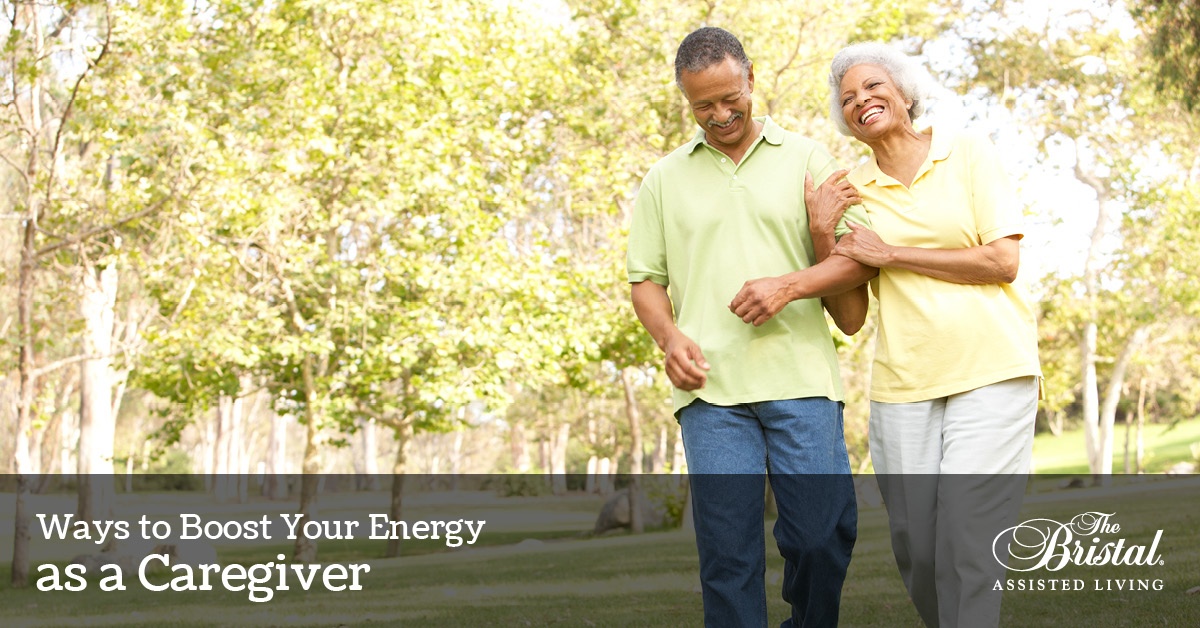The physical demands of taking care of a loved one can make the caregiver feel drained of energy at times. The caregiver may even be making the problem worse by practicing eating and lifestyle habits that contribute to the energy drain, or by overlooking opportunities to become more energetic. If you are a caregiver who feels in need of an energy boost, consider the following suggestions:
Eat the proper foods. It is hard to overstate the importance of proper food choices on boosting and maintaining energy levels. For example, while sugary snacks often are intuitive choices for a quick energy boost, and may also offer the prospect of a little “reward” for the difficult tasks a caregiver faces, in fact, they do more harm than good. That is because your energy level can plunge once your body uses up the sugar, making you feel even more tired. Moreover, such foods contribute to unhealthy weight gain. The alternative is to snack on fruits and nuts, which provide a steadier energy boost derived from highly beneficial nutrition. Similarly, at regular meal times, give preference to nutritionally well balanced meals and try to avoid processed foods that remove fiber and usually contain too much salt.
Do NOT skip breakfast. This is the meal that sets the day’s energy supply in motion. As for mealtimes in general, avoid heavy amounts of food, which require a lot of energy from your body to digest and can leave you sluggish. Eat light meals, spaced about four hours apart, up to four meals a day if that works for you.
Avoid excessive caffeine. It’s tempting to rely on a second or third cup of caffeinated coffee for an energy boost, but that boost is likely to be offset by caffeine’s damaging effect on sleep. In addition, the caffeine can have unwanted side effects, advises the Mayo Clinic. Those potential effects include nervousness and irritability, in addition to insomnia, all of which are factors that a caregiver emphatically wants to avoid. Consume caffeine in modest amounts, and never close to bedtime.
Make good use of water. Drink several glasses of water each day to stay properly hydrated because even mild dehydration can make you feel rundown. Moreover, splashing cool water on your face is an easy way to reinvigorate yourself when energy starts to lag. Going a step further, as the AARP points out, taking a cold shower during the day is an even more powerful remedy, provided your loved one can be unattended or there is a stand-in caregiver available for the time it takes to do so.
Get exercise and fresh air. Exercise is widely recognized by medical authorities to reduce feelings of fatigue and boost energy levels. One study, for example, from the University of Georgia, found that moderate exercise reduced levels of fatigue by 65 percent and increased energy levels by 20 percent. Of course, it can be difficult for a caregiver to work regular exercise into a daily routine, but try to take a walk each day. The fresh air also will help counter the sometimes draining effects of being indoors all day. If you cannot always get away for a brisk walk, take your loved one for a more casual one, if possible.
Get enough sleep. Sleep deprivation is one of the most prevalent and difficult problems that caregivers face, and it is a major contributing factor to feeling rundown and lacking energy. In a recent post, this blog offers a number of suggestions on ways to get the sleep you need to protect your own health while being the best possible caregiver to your loved one. Consider making those suggestions part of an overall program to boost your energy level.



